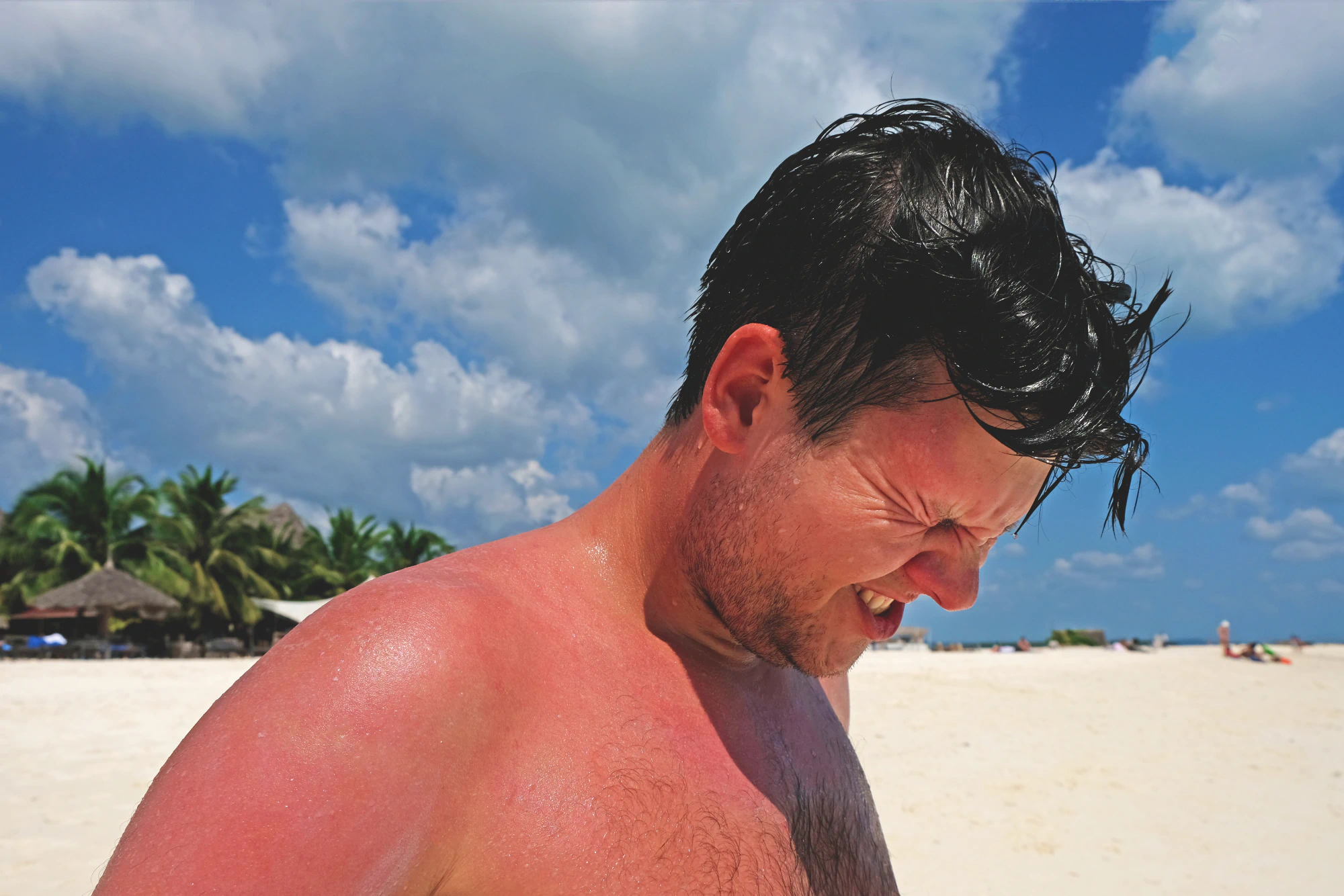How to Know if You Have Sun Poisoning
Conditions
•
Jul 21, 2023
Reviewed by: Jeffrey Peebles, M.D

Making sure that you know how to know if you have sun poisoning can save yourself and your loved ones from a miserable summer. For the past two summers here in Texas, we have been experiencing record-breaking temperatures that are concerning, to say the least. And while most of us may be used to the heat, and some may even enjoy spending time under a blazing sun, the sun’s rays can do a lot of damage if we’re not careful — so much damage that we could end up in the emergency room.
In this article, we’ll be discussing what sun poisoning is, its symptoms, and prevention tips so that you can have a safe and happy summer.
What is sun poisoning?
When your skin has been exposed to the sun’s ultraviolet rays (UV rays) for a prolonged period of time, your skin can become badly burnt and red, especially if your skin was not protected by clothing or sunscreen. By the way, sunscreen is important — remember this for later when we discuss sun poisoning prevention.
Is there a difference between sun poisoning vs sunburn? Sun poisoning is a very severe sunburn that can cause you to feel physically ill, hence the word poisoning. To be clear, you haven’t actually been poisoned by the sun — but it definitely might feel that way.
While a normal sunburn may be accompanied by pain and discomfort, sun poisoning comes with a whole set of concerning symptoms.
What are the signs of sun poisoning?
Just because you have a bad sunburn does not automatically mean that you have sun poisoning; however, a sunburn could turn into sun poisoning if you continue to stay out in the sun unprotected. The main difference between sun poisoning vs sunburn is while a sunburn has external symptoms (red skin), sun poisoning has both internal and external symptoms.
Sun poisoning symptoms include:
- Incredibly burnt, red skin
- Blistering of the skin or skin swelling
- Dehydration (Learn about when to go to the ER or urgent care or ER for dehydration)
- Headaches
- Fever and chills (Learn more about when should you go to the doctor for a fever)
- Nausea and/or vomiting
- Fainting or dizziness
If you or a loved one notice any of these symptoms after being out in the sun for an extended period of time, these are clear signs that you have sun poisoning that needs to be treated immediately.
What to do when you get sun poisoning
If you have a suspicion that you may have sun poisoning, here are some steps you can take to reduce sun poisoning symptoms before seeking treatment:
Step 1: Get out of the sun and into a shaded area or indoors (we suggest indoors).
Step 2: Take a cool shower or apply cool/cold compresses to the neck, groin, back, and armpits to lower the body temperature. Applying aloe vera to the burnt skin may also help. Do not use ice water or extremely cold water as this could send your body into shock.
Step 3: Hydrate with water or electrolyte drinks. If necessary, take an over-the-counter pain medication such as Ibuprofen to manage any pain.
If you begin to feel sick, it’s better to assume that you have sun poisoning and seek help immediately. Cover your skin with protective clothing and head to a Complete Care emergency room or urgent care facility for help.
Sun poisoning treatment
Emergency rooms or urgent care facilities are better equipped to handle extreme sunburn treatment since at-home remedies may not subside your symptoms in a timely manner. If you are severely dehydrated, a doctor can give you an IV to replenish your fluids more quickly. If your sunburn is at risk of infection, the doctor can prescribe some antibiotics or other medications to help with the recovery.
A sunburn will heal with time. Follow your doctor’s instructions on how to properly care for and protect your skin so that no further damage is inflicted.
Sun poisoning prevention
The best way to prevent sun poisoning is to limit your time in the sun, avoid being outside during the hottest points in the day (around 10:00 a.m. to 3 p.m) if possible, stay hydrated, and apply sunscreen regularly throughout the day, even if you are not in direct sunlight.
In terms of sunscreen application, is higher SPF better? Not necessarily. In fact, anything higher than SPF 50 can give users a false sense of security and may overexpose them to the sun’s harmful rays, which can result in sun poisoning.
Complete Care is here to help with sun poisoning symptoms
Essentially, how to know if you have sun poisoning comes down to recognizing that you are extremely sunburnt and feeling ill. Sunburns are, unfortunately, all too common this time of year and can turn into dangerous conditions if you’re not careful. It is likely that this extremely hot weather will continue for the remainder of the season, so take extra precautions.
If you find yourself coming down with sun poisoning, Complete Care is open 24/7 to help. We have ER locations all over the state of Texas (Austin, Corpus Christi, Dallas/Fort Worth, East Texas, Lubbock, and San Antonio) and in Colorado Springs and can provide proper sun poisoning treatment.
Grab your sunscreen and a large protective hat, and let’s have a great summer!
More Helpful Articles by Complete Care:
- Common Eye Injuries
- Men’s Health: Common Reasons Men Visit the ER
- Chest Pain at Night While Sleeping
- When to Go to the ER for a Bike Accident
- How to Avoid Food Poisoning This Summer
